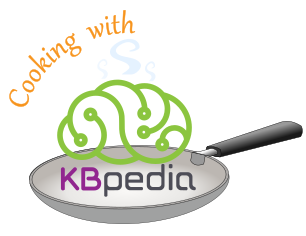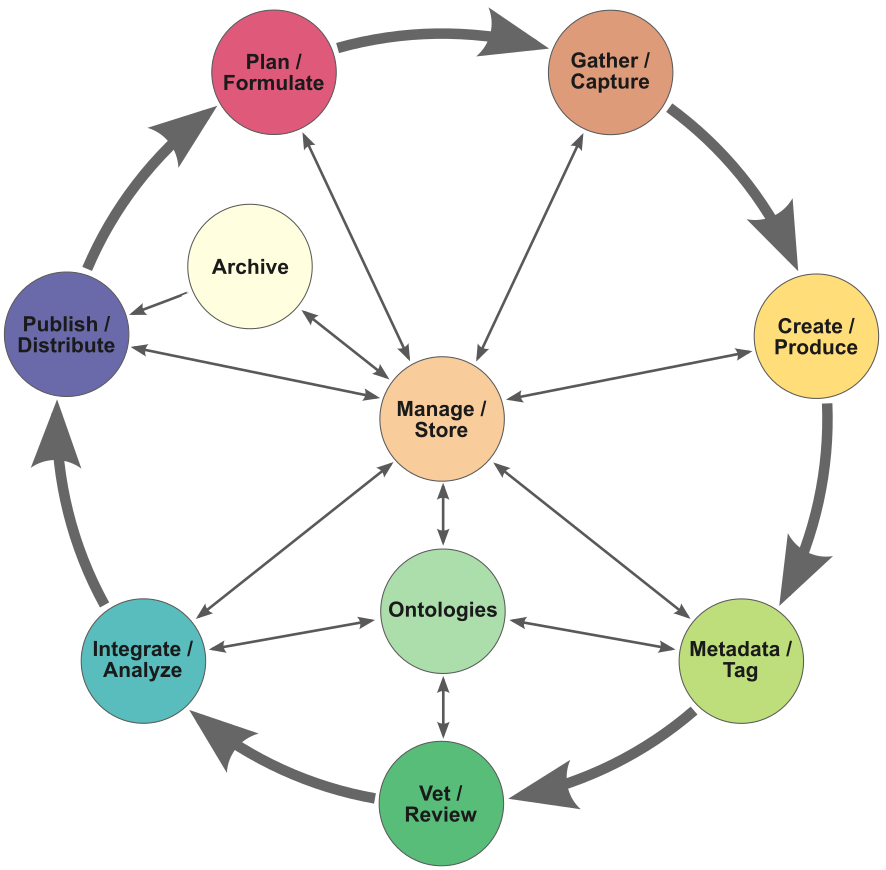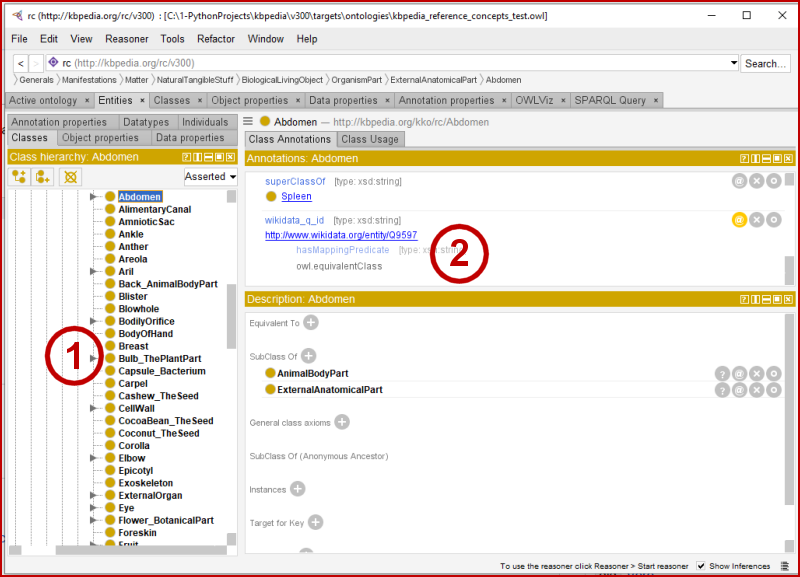[(rc.Person, 'http://dbpedia.org/ontology/Person'),
(rc.SoccerPlayer, 'http://dbpedia.org/ontology/SoccerPlayer'),
(rc.ConceptualWork, 'http://dbpedia.org/ontology/Work'),
(rc.Bird, 'http://dbpedia.org/ontology/Bird'),
(rc.TextualPCW, 'http://dbpedia.org/ontology/WrittenWork'),
(rc.Scientist, 'http://dbpedia.org/ontology/Scientist'),
(rc.BasketballPlayer, 'http://dbpedia.org/ontology/BasketballPlayer'),
(rc.Artist, 'http://dbpedia.org/ontology/Artist'),
(rc.GeopoliticalEntity,
'http://dbpedia.org/ontology/GeopoliticalOrganisation'),
(rc.GeopoliticalEntity, 'http://dbpedia.org/ontology/Region'),
(rc.Lighthouse, 'http://dbpedia.org/ontology/Lighthouse'),
(rc.FootballPlayer_American,
'http://dbpedia.org/ontology/GridironFootballPlayer'),
(rc.FootballPlayer_American,
'http://dbpedia.org/ontology/AmericanFootballPlayer'),
(rc.Organization, 'http://dbpedia.org/ontology/Organisation'),
(rc.Organization, 'http://dbpedia.org/ontology/EmployersOrganisation'),
(rc.Organization, 'http://dbpedia.org/ontology/OrganisationMember'),
(rc.Athlete, 'http://dbpedia.org/ontology/Athlete'),
(rc.Athlete, 'http://dbpedia.org/ontology/AthleticsPlayer'),
(rc.Athlete, 'http://dbpedia.org/ontology/ArcherPlayer'),
(rc.Athlete, 'http://dbpedia.org/ontology/Biathlete'),
(rc.Athlete, 'http://dbpedia.org/ontology/BobsleighAthlete'),
(rc.Athlete, 'http://dbpedia.org/ontology/Canoeist'),
(rc.Athlete, 'http://dbpedia.org/ontology/Curler'),
(rc.Athlete, 'http://dbpedia.org/ontology/DartsPlayer'),
(rc.Athlete, 'http://dbpedia.org/ontology/GaelicGamesPlayer'),
(rc.Athlete, 'http://dbpedia.org/ontology/HorseRider'),
(rc.Athlete,
'http://dbpedia.org/ontology/NationalCollegiateAthleticAssociationAthlete'),
(rc.Athlete, 'http://dbpedia.org/ontology/NetballPlayer'),
(rc.Athlete, 'http://dbpedia.org/ontology/Rower'),
(rc.Athlete, 'http://dbpedia.org/ontology/Skater'),
(rc.Athlete, 'http://dbpedia.org/ontology/Ski-jumper'),
(rc.Athlete, 'http://dbpedia.org/ontology/SnookerChamp'),
(rc.Athlete, 'http://dbpedia.org/ontology/SnookerPlayer'),
(rc.Athlete, 'http://dbpedia.org/ontology/SpeedSkater'),
(rc.Athlete, 'http://dbpedia.org/ontology/SportsTeamMember'),
(rc.Athlete, 'http://dbpedia.org/ontology/TableTennisPlayer'),
(rc.Athlete, 'http://dbpedia.org/ontology/TeamMember'),
(rc.Athlete, 'http://dbpedia.org/ontology/WaterPoloPlayer'),
(rc.Athlete, 'http://dbpedia.org/ontology/WinterSportPlayer'),
(rc.Building, 'http://dbpedia.org/ontology/Building'),
(rc.Philosopher, 'http://dbpedia.org/ontology/Philosopher'),
(rc.MusicalComposition, 'http://dbpedia.org/ontology/MusicalWork'),
(rc.Horse, 'http://dbpedia.org/ontology/Horse'),
(rc.MartialArtist, 'http://dbpedia.org/ontology/MartialArtist'),
(rc.Golfer, 'http://dbpedia.org/ontology/GolfPlayer'),
(rc.Amphibian, 'http://dbpedia.org/ontology/Amphibian'),
(rc.RailroadStation, 'http://dbpedia.org/ontology/RailwayStation'),
(rc.RailroadStation, 'http://dbpedia.org/ontology/TramStation'),
(rc.Anime, 'http://dbpedia.org/ontology/Anime'),
(rc.Monument, 'http://dbpedia.org/ontology/Monument'),
(rc.Arachnid, 'http://dbpedia.org/ontology/Arachnid'),
(rc.Architect, 'http://dbpedia.org/ontology/Architect'),
(rc.Legislator, 'http://dbpedia.org/ontology/Senator'),
(rc.Article_PCW, 'http://dbpedia.org/ontology/Article'),
(rc.Cave, 'http://dbpedia.org/ontology/Cave'),
(rc.ChemicalSubstanceType, 'http://dbpedia.org/ontology/ChemicalCompound'),
(rc.ChemicalSubstanceType, 'http://dbpedia.org/ontology/ChemicalSubstance'),
(rc.TennisPlayer, 'http://dbpedia.org/ontology/TennisPlayer'),
(rc.TennisTournament, 'http://dbpedia.org/ontology/TennisTournament'),
(rc.AdministrativeDistrict,
'http://dbpedia.org/ontology/GovernmentalAdministrativeRegion'),
(rc.AdministrativeDistrict,
'http://dbpedia.org/ontology/ClericalAdministrativeRegion'),
(rc.AdministrativeDistrict, 'http://dbpedia.org/ontology/MicroRegion'),
(rc.Food, 'http://dbpedia.org/ontology/Food'),
(rc.BaseballPlayer, 'http://dbpedia.org/ontology/BaseballPlayer'),
(rc.FootballPlayer_Australian,
'http://dbpedia.org/ontology/AustralianRulesFootballPlayer'),
(rc.Municipality, 'http://dbpedia.org/ontology/Municipality'),
(rc.Municipality, 'http://dbpedia.org/ontology/FormerMunicipality'),
(rc.ElectedOfficial, 'http://dbpedia.org/ontology/OfficeHolder'),
(rc.BadmintonPlayer, 'http://dbpedia.org/ontology/BadmintonPlayer'),
(rc.PopulatedPlace, 'http://dbpedia.org/ontology/PopulatedPlace'),
(rc.RugbyPlayer, 'http://dbpedia.org/ontology/RugbyPlayer'),
(rc.School_AcademicOrganization, 'http://dbpedia.org/ontology/School'),
(rc.BodyOfWater, 'http://dbpedia.org/ontology/BodyOfWater'),
(rc.Temple, 'http://dbpedia.org/ontology/Temple'),
(rc.VolleyballPlayer, 'http://dbpedia.org/ontology/VolleyballPlayer'),
(rc.VolleyballPlayer, 'http://dbpedia.org/ontology/BeachVolleyballPlayer'),
(rc.Brewery, 'http://dbpedia.org/ontology/Brewery'),
(rc.Judge, 'http://dbpedia.org/ontology/Judge'),
(rc.Mountain, 'http://dbpedia.org/ontology/Mountain'),
(rc.Pass_Geographical, 'http://dbpedia.org/ontology/MountainPass'),
(rc.Game, 'http://dbpedia.org/ontology/Game'),
(rc.Ship, 'http://dbpedia.org/ontology/Ship'),
(rc.HotelBuilding, 'http://dbpedia.org/ontology/Hotel'),
(rc.Boxer, 'http://dbpedia.org/ontology/Boxer'),
(rc.Boxer, 'http://dbpedia.org/ontology/AmateurBoxer'),
(rc.Brain, 'http://dbpedia.org/ontology/Brain'),
(rc.Bridge, 'http://dbpedia.org/ontology/Bridge'),
(rc.Periodical, 'http://dbpedia.org/ontology/PeriodicalLiterature'),
(rc.Wrestler, 'http://dbpedia.org/ontology/Wrestler'),
(rc.VisualImage, 'http://dbpedia.org/ontology/Image'),
(rc.Professor, 'http://dbpedia.org/ontology/Professor'),
(rc.ReligiousOrganization, 'http://dbpedia.org/ontology/ClericalOrder'),
(rc.ReligiousOrganization,
'http://dbpedia.org/ontology/ReligiousOrganisation'),
(rc.Archive, 'http://dbpedia.org/ontology/Archive'),
(rc.Treaty, 'http://dbpedia.org/ontology/Treaty'),
(rc.FictionalCharacter, 'http://dbpedia.org/ontology/FictionalCharacter'),
(rc.FictionalCharacter, 'http://dbpedia.org/ontology/MythologicalFigure'),
(rc.SoftwareObject_Individual, 'http://dbpedia.org/ontology/Software'),
(rc.Parish_EcclesiasticalDistrict, 'http://dbpedia.org/ontology/Deanery'),
(rc.Actor, 'http://dbpedia.org/ontology/Actor'),
(rc.Actor, 'http://dbpedia.org/ontology/AdultActor'),
(rc.ReligiousBuilding, 'http://dbpedia.org/ontology/ReligiousBuilding'),
(rc.Concept, 'http://dbpedia.org/ontology/ScientificConcept'),
(rc.Reserve_OutdoorRegion, 'http://dbpedia.org/ontology/ProtectedArea'),
(rc.ResearchProject, 'http://dbpedia.org/ontology/ResearchProject'),
(rc.Country, 'http://dbpedia.org/ontology/Country'),
(rc.Cyclist_Athlete, 'http://dbpedia.org/ontology/Cyclist'),
(rc.Cricketer, 'http://dbpedia.org/ontology/Cricketer'),
(rc.ConstructionArtifact,
'http://dbpedia.org/ontology/ArchitecturalStructure'),
(rc.Currency, 'http://dbpedia.org/ontology/Currency'),
(rc.Graveyard, 'http://dbpedia.org/ontology/Cemetery'),
(rc.CyclingSportsEvent, 'http://dbpedia.org/ontology/CyclingCompetition'),
(rc.CyclingSportsEvent, 'http://dbpedia.org/ontology/CyclingRace'),
(rc.Racehorse, 'http://dbpedia.org/ontology/RaceHorse'),
(rc.Neighborhood, 'http://dbpedia.org/ontology/CityDistrict'),
(rc.Asteroid, 'http://dbpedia.org/ontology/Asteroid'),
(rc.City, 'http://dbpedia.org/ontology/City'),
(rc.Library_Organization, 'http://dbpedia.org/ontology/Library'),
(rc.Actor_Voice, 'http://dbpedia.org/ontology/VoiceActor'),
(rc.HumanGivenName, 'http://dbpedia.org/ontology/GivenName'),
(rc.Painter_FineArtist, 'http://dbpedia.org/ontology/Painter'),
(rc.AilmentCondition, 'http://dbpedia.org/ontology/Disease'),
(rc.Park, 'http://dbpedia.org/ontology/Park'),
(rc.EducationalOrganization,
'http://dbpedia.org/ontology/EducationalInstitution'),
(rc.EducationalOrganization, 'http://dbpedia.org/ontology/SambaSchool'),
(rc.IceHockeyPlayer, 'http://dbpedia.org/ontology/IceHockeyPlayer'),
(rc.Surfer, 'http://dbpedia.org/ontology/Surfer'),
(rc.ProteinMolecule, 'http://dbpedia.org/ontology/Protein'),
(rc.Magazine, 'http://dbpedia.org/ontology/Magazine'),
(rc.Gene_HereditaryUnit, 'http://dbpedia.org/ontology/Gene'),
(rc.Action, 'http://dbpedia.org/ontology/Activity'),
(rc.District_State_Geopolitical, 'http://dbpedia.org/ontology/District'),
(rc.Law, 'http://dbpedia.org/ontology/Law'),
(rc.FashionDesigner, 'http://dbpedia.org/ontology/FashionDesigner'),
(rc.Theater_PhysicalStructure, 'http://dbpedia.org/ontology/Theatre'),
(rc.Airport_Physical, 'http://dbpedia.org/ontology/Airport'),
(rc.PersonTypeByOccupation, 'http://dbpedia.org/ontology/CareerStation'),
(rc.PersonTypeByOccupation, 'http://dbpedia.org/ontology/Profession'),
(rc.Swimmer, 'http://dbpedia.org/ontology/Swimmer'),
(rc.Gymnast, 'http://dbpedia.org/ontology/Gymnast'),
(rc.Restaurant, 'http://dbpedia.org/ontology/Restaurant'),
(rc.Lake, 'http://dbpedia.org/ontology/Lake'),
(rc.SnowSkier, 'http://dbpedia.org/ontology/Skier'),
(rc.SnowSkier, 'http://dbpedia.org/ontology/CrossCountrySkier'),
(rc.Flag, 'http://dbpedia.org/ontology/Flag'),
(rc.Genome_GIS, 'http://dbpedia.org/ontology/GeneLocation'),
(rc.Genome_GIS, 'http://dbpedia.org/ontology/HumanGeneLocation'),
(rc.Genome_GIS, 'http://dbpedia.org/ontology/MouseGeneLocation'),
(rc.CommercialOrganization, 'http://dbpedia.org/ontology/Company'),
(rc.Photographer, 'http://dbpedia.org/ontology/Photographer'),
(rc.HistoricPeriod, 'http://dbpedia.org/ontology/HistoricalPeriod'),
(rc.HistoricPeriod, 'http://dbpedia.org/ontology/PeriodOfArtisticStyle'),
(rc.HistoricPeriod, 'http://dbpedia.org/ontology/ProtohistoricalPeriod'),
(rc.Cleric, 'http://dbpedia.org/ontology/Cleric'),
(rc.Cleric, 'http://dbpedia.org/ontology/Priest'),
(rc.Cleric, 'http://dbpedia.org/ontology/Vicar'),
(rc.MedicalFieldOfStudy, 'http://dbpedia.org/ontology/Medicine'),
(rc.PokerPlayer, 'http://dbpedia.org/ontology/PokerPlayer'),
(rc.LandTopographicalFeature, 'http://dbpedia.org/ontology/NaturalPlace'),
(rc.Glacier, 'http://dbpedia.org/ontology/Glacier'),
(rc.NonProfitOrganization,
'http://dbpedia.org/ontology/Non-ProfitOrganisation'),
(rc.NonProfitOrganization, 'http://dbpedia.org/ontology/RecordOffice'),
(rc.Mineral, 'http://dbpedia.org/ontology/Mineral'),
(rc.Diver, 'http://dbpedia.org/ontology/HighDiver'),
(rc.Fungus, 'http://dbpedia.org/ontology/Fungus'),
(rc.PersonTypeByEthnicity, 'http://dbpedia.org/ontology/EthnicGroup'),
(rc.Island, 'http://dbpedia.org/ontology/Island'),
(rc.Specification, 'http://dbpedia.org/ontology/Standard'),
(rc.FigureSkater, 'http://dbpedia.org/ontology/FigureSkater'),
(rc.Town, 'http://dbpedia.org/ontology/Town'),
(rc.FootballPlayer_Canadian,
'http://dbpedia.org/ontology/CanadianFootballPlayer'),
(rc.JournalSeries, 'http://dbpedia.org/ontology/AcademicJournal'),
(rc.JournalSeries, 'http://dbpedia.org/ontology/UndergroundJournal'),
(rc.Singer, 'http://dbpedia.org/ontology/Singer'),
(rc.Director_Movie, 'http://dbpedia.org/ontology/MovieDirector'),
(rc.ComputerGameProgram, 'http://dbpedia.org/ontology/VideoGame'),
(rc.TransportationPathSystemType,
'http://dbpedia.org/ontology/On-SiteTransportation'),
(rc.MusicalComposition_Song, 'http://dbpedia.org/ontology/Song'),
(rc.MusicalComposition_Song,
'http://dbpedia.org/ontology/EurovisionSongContestEntry'),
(rc.EukaryoticGene, 'http://dbpedia.org/ontology/HumanGene'),
(rc.EukaryoticGene, 'http://dbpedia.org/ontology/MouseGene'),
(rc.MilitaryVehicle, 'http://dbpedia.org/ontology/MilitaryVehicle'),
(rc.MusicalInstrument, 'http://dbpedia.org/ontology/Instrument'),
(rc.LacrossePlayer, 'http://dbpedia.org/ontology/LacrossePlayer'),
(rc.FashionModel, 'http://dbpedia.org/ontology/Model'),
(rc.Sculpture, 'http://dbpedia.org/ontology/Sculpture'),
(rc.MusicalComposer, 'http://dbpedia.org/ontology/MusicComposer'),
(rc.Manga, 'http://dbpedia.org/ontology/Manga'),
(rc.Astronaut, 'http://dbpedia.org/ontology/Astronaut'),
(rc.MilitaryPerson, 'http://dbpedia.org/ontology/MilitaryPerson'),
(rc.Village, 'http://dbpedia.org/ontology/Settlement'),
(rc.Village, 'http://dbpedia.org/ontology/Village'),
(rc.Village, 'http://dbpedia.org/ontology/IranSettlement'),
(rc.PublicPlace, 'http://dbpedia.org/ontology/Venue'),
(rc.Street_Generic, 'http://dbpedia.org/ontology/Street'),
(rc.PhysicalDevice, 'http://dbpedia.org/ontology/Device'),
(rc.Insect, 'http://dbpedia.org/ontology/Insect'),
(rc.SquashPlayer, 'http://dbpedia.org/ontology/SquashPlayer'),
(rc.River, 'http://dbpedia.org/ontology/River'),
(rc.Roadway, 'http://dbpedia.org/ontology/Road'),
(rc.RollerCoaster, 'http://dbpedia.org/ontology/RollerCoaster'),
(rc.TransportFacility, 'http://dbpedia.org/ontology/LaunchPad'),
(rc.TransportFacility, 'http://dbpedia.org/ontology/RouteStop'),
(rc.Volcano, 'http://dbpedia.org/ontology/Volcano'),
(rc.Dam, 'http://dbpedia.org/ontology/Dam'),
(rc.SportsTeam, 'http://dbpedia.org/ontology/SportsTeam'),
(rc.SportsTeam, 'http://dbpedia.org/ontology/CyclingTeam'),
(rc.SportsTeam, 'http://dbpedia.org/ontology/FormulaOneTeam'),
(rc.SportsTeam, 'http://dbpedia.org/ontology/HandballTeam'),
(rc.SportsTeam, 'http://dbpedia.org/ontology/NationalSoccerClub'),
(rc.SportsTeam, 'http://dbpedia.org/ontology/SpeedwayTeam'),
(rc.Election, 'http://dbpedia.org/ontology/Election'),
(rc.Monarch_HeadOfState, 'http://dbpedia.org/ontology/Monarch'),
(rc.AnimalBodyPart, 'http://dbpedia.org/ontology/AnatomicalStructure'),
(rc.BloodVessel, 'http://dbpedia.org/ontology/BloodVessel'),
(rc.PoliticalParty, 'http://dbpedia.org/ontology/PoliticalParty'),
(rc.Terminal_TransferPoint, 'http://dbpedia.org/ontology/Station'),
(rc.MilitaryAircraft, 'http://dbpedia.org/ontology/MilitaryAircraft'),
(rc.Name, 'http://dbpedia.org/ontology/Name'),
(rc.Earthquake, 'http://dbpedia.org/ontology/Earthquake'),
(rc.Automobile, 'http://dbpedia.org/ontology/Automobile'),
(rc.Animal, 'http://dbpedia.org/ontology/Animal'),
(rc.SportsEvent, 'http://dbpedia.org/ontology/SportsEvent'),
(rc.SportsEvent, 'http://dbpedia.org/ontology/FootballMatch'),
(rc.SportsEvent,
'http://dbpedia.org/ontology/InternationalFootballLeagueEvent'),
(rc.MusicSingle, 'http://dbpedia.org/ontology/Single'),
(rc.Spacecraft, 'http://dbpedia.org/ontology/Spacecraft'),
(rc.AirlineCompany, 'http://dbpedia.org/ontology/Airline'),
(rc.Bishop_Clerical, 'http://dbpedia.org/ontology/ChristianBishop'),
(rc.Engine, 'http://dbpedia.org/ontology/Engine'),
(rc.CourtCase, 'http://dbpedia.org/ontology/Case'),
(rc.CourtCase, 'http://dbpedia.org/ontology/LegalCase'),
(rc.Holiday, 'http://dbpedia.org/ontology/Holiday'),
(rc.Event, 'http://dbpedia.org/ontology/Event'),
(rc.SportsCompetition, 'http://dbpedia.org/ontology/SportCompetitionResult'),
(rc.AwardPractice, 'http://dbpedia.org/ontology/Award'),
(rc.RacingSportsEvent, 'http://dbpedia.org/ontology/Race'),
(rc.RacingSportsEvent, 'http://dbpedia.org/ontology/GrandPrix'),
(rc.Province, 'http://dbpedia.org/ontology/Province'),
(rc.Nerve, 'http://dbpedia.org/ontology/Nerve'),
(rc.Conference, 'http://dbpedia.org/ontology/AcademicConference'),
(rc.Rating, 'http://dbpedia.org/ontology/SnookerWorldRanking'),
(rc.SportsLeague, 'http://dbpedia.org/ontology/SportsLeague'),
(rc.SportsLeague, 'http://dbpedia.org/ontology/AmericanFootballLeague'),
(rc.SportsLeague, 'http://dbpedia.org/ontology/AutoRacingLeague'),
(rc.SportsLeague, 'http://dbpedia.org/ontology/BasketballLeague'),
(rc.SportsLeague, 'http://dbpedia.org/ontology/BowlingLeague'),
(rc.SportsLeague, 'http://dbpedia.org/ontology/BoxingLeague'),
(rc.SportsLeague, 'http://dbpedia.org/ontology/CanadianFootballLeague'),
(rc.SportsLeague, 'http://dbpedia.org/ontology/CricketLeague'),
(rc.SportsLeague, 'http://dbpedia.org/ontology/CurlingLeague'),
(rc.SportsLeague, 'http://dbpedia.org/ontology/CyclingLeague'),
(rc.SportsLeague, 'http://dbpedia.org/ontology/FieldHockeyLeague'),
(rc.SportsLeague, 'http://dbpedia.org/ontology/FormulaOneRacing'),
(rc.SportsLeague, 'http://dbpedia.org/ontology/GolfLeague'),
(rc.SportsLeague, 'http://dbpedia.org/ontology/HandballLeague'),
(rc.SportsLeague, 'http://dbpedia.org/ontology/IceHockeyLeague'),
(rc.SportsLeague, 'http://dbpedia.org/ontology/InlineHockeyLeague'),
(rc.SportsLeague, 'http://dbpedia.org/ontology/LacrosseLeague'),
(rc.SportsLeague, 'http://dbpedia.org/ontology/MixedMartialArtsLeague'),
(rc.SportsLeague, 'http://dbpedia.org/ontology/MotorcycleRacingLeague'),
(rc.SportsLeague, 'http://dbpedia.org/ontology/PaintballLeague'),
(rc.SportsLeague, 'http://dbpedia.org/ontology/PoloLeague'),
(rc.SportsLeague, 'http://dbpedia.org/ontology/RadioControlledRacingLeague'),
(rc.SportsLeague, 'http://dbpedia.org/ontology/RugbyLeague'),
(rc.SportsLeague, 'http://dbpedia.org/ontology/SoccerLeague'),
(rc.SportsLeague, 'http://dbpedia.org/ontology/SoftballLeague'),
(rc.SportsLeague, 'http://dbpedia.org/ontology/SpeedwayLeague'),
(rc.SportsLeague, 'http://dbpedia.org/ontology/TennisLeague'),
(rc.SportsLeague, 'http://dbpedia.org/ontology/VideogamesLeague'),
(rc.SportsLeague, 'http://dbpedia.org/ontology/VolleyballLeague'),
(rc.Competition, 'http://dbpedia.org/ontology/Competition'),
(rc.Abbey, 'http://dbpedia.org/ontology/Abbey'),
(rc.Muscle, 'http://dbpedia.org/ontology/Muscle'),
(rc.LegislativeOrganization, 'http://dbpedia.org/ontology/Legislature'),
(rc.Wine, 'http://dbpedia.org/ontology/Wine'),
(rc.SportSeason, 'http://dbpedia.org/ontology/SportsSeason'),
(rc.SportSeason, 'http://dbpedia.org/ontology/SportsTeamSeason'),
(rc.SportSeason, 'http://dbpedia.org/ontology/MotorsportSeason'),
(rc.SportSeason, 'http://dbpedia.org/ontology/NationalFootballLeagueSeason'),
(rc.SportSeason, 'http://dbpedia.org/ontology/NCAATeamSeason'),
(rc.SportSeason, 'http://dbpedia.org/ontology/SoccerClubSeason'),
(rc.SportSeason, 'http://dbpedia.org/ontology/SoccerLeagueSeason'),
(rc.HistoricalSite, 'http://dbpedia.org/ontology/HistoricPlace'),
(rc.HistoricalSite, 'http://dbpedia.org/ontology/HistoricalCountry'),
(rc.HistoricalSite, 'http://dbpedia.org/ontology/HistoricalDistrict'),
(rc.HistoricalSite, 'http://dbpedia.org/ontology/HistoricalProvince'),
(rc.HistoricalSite, 'http://dbpedia.org/ontology/HistoricalRegion'),
(rc.HistoricalSite, 'http://dbpedia.org/ontology/HistoricalSettlement'),
(rc.FieldOfStudy, 'http://dbpedia.org/ontology/AcademicSubject'),
(rc.PharmacyProductType, 'http://dbpedia.org/ontology/Drug'),
(rc.GeologicalTimePeriod, 'http://dbpedia.org/ontology/GeologicalPeriod'),
(rc.PersonWithOccupation, 'http://dbpedia.org/ontology/Deputy'),
(rc.BankOrganization, 'http://dbpedia.org/ontology/Bank'),
(rc.AutoEngine, 'http://dbpedia.org/ontology/AutomobileEngine'),
(rc.Galaxy, 'http://dbpedia.org/ontology/Galaxy'),
(rc.PowerGenerationComplex, 'http://dbpedia.org/ontology/PowerStation'),
(rc.TravelRoute, 'http://dbpedia.org/ontology/RouteOfTransportation'),
(rc.Stream, 'http://dbpedia.org/ontology/Stream'),
(rc.SportsClub, 'http://dbpedia.org/ontology/SportsClub'),
(rc.SportsClub, 'http://dbpedia.org/ontology/RugbyClub'),
(rc.SportsClub, 'http://dbpedia.org/ontology/SoccerClub'),
(rc.Sport, 'http://dbpedia.org/ontology/Sport'),
(rc.StructuredSportsEvent, 'http://dbpedia.org/ontology/PenaltyShootOut'),
(rc.SerialKiller, 'http://dbpedia.org/ontology/SerialKiller'),
(rc.GolfCourse, 'http://dbpedia.org/ontology/GolfCourse'),
(rc.Doctor_Medical, 'http://dbpedia.org/ontology/Medician'),
(rc.Canton_Swiss, 'http://dbpedia.org/ontology/Canton'),
(rc.Monarchy, 'http://dbpedia.org/ontology/Fiefdom'),
(rc.Monarchy, 'http://dbpedia.org/ontology/HistoricalAreaOfAuthority'),
(rc.Monarchy, 'http://dbpedia.org/ontology/Regency'),
(rc.Artery, 'http://dbpedia.org/ontology/Artery'),
(rc.PoliticalBeliefSystem, 'http://dbpedia.org/ontology/Ideology'),
(rc.PoliticalBeliefSystem, 'http://dbpedia.org/ontology/PoliticalConcept'),
(rc.Mammal, 'http://dbpedia.org/ontology/Mammal'),
(rc.Lawyer, 'http://dbpedia.org/ontology/Lawyer'),
(rc.Patriarch, 'http://dbpedia.org/ontology/ChristianPatriarch'),
(rc.Vodka, 'http://dbpedia.org/ontology/Vodka'),
(rc.Document, 'http://dbpedia.org/ontology/Document'),
(rc.Document, 'http://dbpedia.org/ontology/DocumentType'),
(rc.PhilosophyBeliefs, 'http://dbpedia.org/ontology/PhilosophicalConcept'),
(rc.AbstractProgrammingLanguage,
'http://dbpedia.org/ontology/ProgrammingLanguage'),
(rc.CapitalCityOfRegion, 'http://dbpedia.org/ontology/CapitalOfRegion'),
(rc.CapitalCityOfRegion, 'http://dbpedia.org/ontology/Capital'),
(rc.DomesticCat, 'http://dbpedia.org/ontology/Cat'),
(rc.Movie, 'http://dbpedia.org/ontology/Film'),
(rc.MusicalInstrumentPlayer, 'http://dbpedia.org/ontology/Instrumentalist'),
(rc.BusinessPerson, 'http://dbpedia.org/ontology/BusinessPerson'),
(rc.Enzyme, 'http://dbpedia.org/ontology/Enzyme'),
(rc.ArchitecturalTypeByStyle,
'http://dbpedia.org/ontology/ArchitecturalStructure'),
(rc.Color, 'http://dbpedia.org/ontology/Colour'),
(rc.Bacterium, 'http://dbpedia.org/ontology/Bacteria'),
(rc.Weapon, 'http://dbpedia.org/ontology/Weapon'),
(rc.Artist_Performer, 'http://dbpedia.org/ontology/BeautyQueen'),
(rc.Painting_ArtForm, 'http://dbpedia.org/ontology/Painting'),
(rc.SocialOccurrence, 'http://dbpedia.org/ontology/SocietalEvent'),
(rc.Family_Human, 'http://dbpedia.org/ontology/Family'),
(rc.FilmGenre, 'http://dbpedia.org/ontology/MovieGenre'),
(rc.Dancer_Performer, 'http://dbpedia.org/ontology/Dancer'),
(rc.Economist, 'http://dbpedia.org/ontology/Economist'),
(rc.MountainRange, 'http://dbpedia.org/ontology/MountainRange'),
(rc.Department, 'http://dbpedia.org/ontology/Department'),
(rc.Archipelago, 'http://dbpedia.org/ontology/Archipelago'),
(rc.Sea, 'http://dbpedia.org/ontology/Sea'),
(rc.WebSite, 'http://dbpedia.org/ontology/Website'),
(rc.AdultFemaleHuman, 'http://dbpedia.org/ontology/BeautyQueen'),
(rc.AthleticActivity, 'http://dbpedia.org/ontology/Athletics'),
(rc.Project, 'http://dbpedia.org/ontology/Project'),
(rc.PersonTypeByActivity, 'http://dbpedia.org/ontology/ChessPlayer'),
(rc.SociabilityBasedAction, 'http://dbpedia.org/ontology/PublicService'),
(rc.Biologist, 'http://dbpedia.org/ontology/Biologist'),
(rc.Engineer, 'http://dbpedia.org/ontology/Engineer'),
(rc.Dog, 'http://dbpedia.org/ontology/Dog'),
(rc.HumanSurname, 'http://dbpedia.org/ontology/Surname'),
(rc.Dying, 'http://dbpedia.org/ontology/Death'),
(rc.Journalist, 'http://dbpedia.org/ontology/Journalist'),
(rc.Agent_Generic, 'http://dbpedia.org/ontology/Agent'),
(rc.SocialQuantity, 'http://dbpedia.org/ontology/HumanDevelopmentIndex'),
(rc.Facility_Construct, 'http://dbpedia.org/ontology/Infrastructure'),
(rc.Crustacean, 'http://dbpedia.org/ontology/Crustacean'),
(rc.Conveying_Generic, 'http://dbpedia.org/ontology/ConveyorSystem'),
(rc.AirTransportationVehicle, 'http://dbpedia.org/ontology/Aircraft'),
(rc.TransportationDevice_Vehicle,
'http://dbpedia.org/ontology/MeanOfTransportation'),
(rc.PartOfBuilding, 'http://dbpedia.org/ontology/NoteworthyPartOfBuilding'),
(rc.PortFacility, 'http://dbpedia.org/ontology/Port'),
(rc.Driver_TransportationProfessional,
'http://dbpedia.org/ontology/MotorsportRacer'),
(rc.Driver_TransportationProfessional,
'http://dbpedia.org/ontology/RacingDriver'),
(rc.Driver_TransportationProfessional,
'http://dbpedia.org/ontology/RallyDriver'),
(rc.Fish, 'http://dbpedia.org/ontology/Fish'),
(rc.Sound, 'http://dbpedia.org/ontology/Sound'),
(rc.Album, 'http://dbpedia.org/ontology/Album'),
(rc.Drink, 'http://dbpedia.org/ontology/Beverage'),
(rc.Star, 'http://dbpedia.org/ontology/Star'),
(rc.Beer, 'http://dbpedia.org/ontology/Beer'),
(rc.Writer, 'http://dbpedia.org/ontology/Writer'),
(rc.Plant, 'http://dbpedia.org/ontology/Plant'),
(rc.God, 'http://dbpedia.org/ontology/Deity'),
(rc.ReferenceWork, 'http://dbpedia.org/ontology/Reference'),
(rc.Letter_Alphabetic, 'http://dbpedia.org/ontology/Letter'),
(rc.List_Information, 'http://dbpedia.org/ontology/List'),
(rc.MusicTypeByGenre, 'http://dbpedia.org/ontology/MusicGenre'),
(rc.RecordCompany, 'http://dbpedia.org/ontology/RecordLabel'),
(rc.Altitude, 'http://dbpedia.org/ontology/Altitude'),
(rc.Desert, 'http://dbpedia.org/ontology/Desert'),
(rc.HumanActivity, 'http://dbpedia.org/ontology/PersonFunction'),
(rc.Territory, 'http://dbpedia.org/ontology/Territory'),
(rc.Territory, 'http://dbpedia.org/ontology/OldTerritory'),
(rc.Ambassador, 'http://dbpedia.org/ontology/Ambassador'),
(rc.Moss, 'http://dbpedia.org/ontology/Moss'),
(rc.FootballTeam, 'http://dbpedia.org/ontology/AmericanFootballTeam'),
(rc.FootballTeam, 'http://dbpedia.org/ontology/AustralianFootballTeam'),
(rc.FootballTeam, 'http://dbpedia.org/ontology/CanadianFootballTeam'),
(rc.BaseballSeason, 'http://dbpedia.org/ontology/BaseballSeason'),
(rc.AmusementParkRide, 'http://dbpedia.org/ontology/AmusementParkAttraction'),
(rc.AmusementParkRide, 'http://dbpedia.org/ontology/WaterRide'),
(rc.Reptile, 'http://dbpedia.org/ontology/Reptile'),
(rc.GeopoliticalEntityBySystemOfGovernment,
'http://dbpedia.org/ontology/GovernmentType'),
(rc.VisualWork, 'http://dbpedia.org/ontology/Artwork'),
(rc.HorseRacingEvent, 'http://dbpedia.org/ontology/HorseRace'),
(rc.Forest, 'http://dbpedia.org/ontology/Forest'),
(rc.OlympicGames, 'http://dbpedia.org/ontology/Olympics'),
(rc.TownSquare, 'http://dbpedia.org/ontology/Square'),
(rc.Constellation, 'http://dbpedia.org/ontology/Constellation'),
(rc.Chancellor_HeadOfGovernment, 'http://dbpedia.org/ontology/Chancellor'),
(rc.BiologicalSpecies, 'http://dbpedia.org/ontology/Species'),
(rc.Diocese, 'http://dbpedia.org/ontology/Diocese'),
(rc.AnimalTrainer, 'http://dbpedia.org/ontology/HorseTrainer'),
(rc.TVShow, 'http://dbpedia.org/ontology/TelevisionShow'),
(rc.Club_Organization, 'http://dbpedia.org/ontology/HockeyClub'),
(rc.Valuable_PersonalPossession,
'http://dbpedia.org/ontology/CollectionOfValuables'),
(rc.Cheese, 'http://dbpedia.org/ontology/Cheese'),
(rc.Cultivar, 'http://dbpedia.org/ontology/CultivatedVariety'),
(rc.OfficialDocument, 'http://dbpedia.org/ontology/StatedResolution'),
(rc.FloralPlant, 'http://dbpedia.org/ontology/FloweringPlant'),
(rc.Conifer, 'http://dbpedia.org/ontology/Conifer'),
(rc.Archaea, 'http://dbpedia.org/ontology/Archaea'),
(rc.Archaeologist, 'http://dbpedia.org/ontology/Archeologist'),
(rc.Ocean, 'http://dbpedia.org/ontology/Ocean'),
(rc.Area, 'http://dbpedia.org/ontology/Area'),
(rc.Stadium, 'http://dbpedia.org/ontology/Arena'),
(rc.Stadium, 'http://dbpedia.org/ontology/Stadium'),
(rc.FootballSeason, 'http://dbpedia.org/ontology/FootballLeagueSeason'),
(rc.RocketPropelledTransportationDevice,
'http://dbpedia.org/ontology/Rocket'),
(rc.Aristocrat, 'http://dbpedia.org/ontology/Aristocrat'),
(rc.Aristocrat, 'http://dbpedia.org/ontology/Royalty'),
(rc.Aristocrat, 'http://dbpedia.org/ontology/BritishRoyalty'),
(rc.AristocratTypeByTitle, 'http://dbpedia.org/ontology/Noble'),
(rc.AristocraticFamilyLine, 'http://dbpedia.org/ontology/NobleFamily'),
(rc.Bone_BodyPart, 'http://dbpedia.org/ontology/Bone'),
(rc.AttackOnObject, 'http://dbpedia.org/ontology/Attack'),
(rc.MilitaryFacility, 'http://dbpedia.org/ontology/MilitaryStructure'),
(rc.Book, 'http://dbpedia.org/ontology/Book'),
(rc.Arrondissement, 'http://dbpedia.org/ontology/Arrondissement'),
(rc.MilitaryOrganization, 'http://dbpedia.org/ontology/MilitaryUnit'),
(rc.Criminal, 'http://dbpedia.org/ontology/Criminal'),
(rc.Decoration, 'http://dbpedia.org/ontology/Decoration'),
(rc.Museum_Organization, 'http://dbpedia.org/ontology/Museum'),
(rc.Language, 'http://dbpedia.org/ontology/Language'),
(rc.Community, 'http://dbpedia.org/ontology/Community'),
(rc.ArtistTypeByArtForm, 'http://dbpedia.org/ontology/ArtisticGenre'),
(rc.Band_MusicGroup, 'http://dbpedia.org/ontology/Band'),
(rc.Murderer, 'http://dbpedia.org/ontology/Murderer'),
(rc.Soccer, 'http://dbpedia.org/ontology/Soccer'),
(rc.CelestialObject, 'http://dbpedia.org/ontology/Globularswarm'),
(rc.CelestialObject, 'http://dbpedia.org/ontology/Openswarm'),
(rc.CelestialObject, 'http://dbpedia.org/ontology/Swarm'),
(rc.SpaceMission, 'http://dbpedia.org/ontology/SpaceMission'),
(rc.ClothingTypeByStyle, 'http://dbpedia.org/ontology/LineOfFashion'),
(rc.SportsPlayingArea, 'http://dbpedia.org/ontology/SportFacility'),
(rc.Atoll, 'http://dbpedia.org/ontology/Atoll'),
(rc.SalesActivity, 'http://dbpedia.org/ontology/Sales'),
(rc.ReligiousBeliefs, 'http://dbpedia.org/ontology/TheologicalConcept'),
(rc.BasketballTeam, 'http://dbpedia.org/ontology/BasketballTeam'),
(rc.AustralianFootballLeague,
'http://dbpedia.org/ontology/AustralianFootballLeague'),
(rc.CarRacing, 'http://dbpedia.org/ontology/DTMRacer'),
(rc.State_Geopolitical, 'http://dbpedia.org/ontology/State'),
(rc.Motorcycle, 'http://dbpedia.org/ontology/Motorcycle'),
(rc.TrainEngine, 'http://dbpedia.org/ontology/Locomotive'),
(rc.Gate, 'http://dbpedia.org/ontology/Gate'),
(rc.BoardGame, 'http://dbpedia.org/ontology/BoardGame'),
(rc.Tournament, 'http://dbpedia.org/ontology/Tournament'),
(rc.Bay, 'http://dbpedia.org/ontology/Bay'),
(rc.Poem, 'http://dbpedia.org/ontology/Poem'),
(rc.Baronet, 'http://dbpedia.org/ontology/Baronet'),
(rc.BaseballTeam, 'http://dbpedia.org/ontology/BaseballTeam'),
(rc.SportsCoach, 'http://dbpedia.org/ontology/Coach'),
(rc.SportsCoach, 'http://dbpedia.org/ontology/AmericanFootballCoach'),
(rc.SportsCoach, 'http://dbpedia.org/ontology/VolleyballCoach'),
(rc.BasketballLeague, 'http://dbpedia.org/ontology/BaseballLeague'),
(rc.TeamSport, 'http://dbpedia.org/ontology/TeamSport'),
(rc.Parliament, 'http://dbpedia.org/ontology/Parliament'),
(rc.HockeyTeam, 'http://dbpedia.org/ontology/HockeyTeam'),
(rc.Collection, 'http://dbpedia.org/ontology/Type'),
(rc.Beach, 'http://dbpedia.org/ontology/Beach'),
(rc.IrregularMilitaryForce,
'http://dbpedia.org/ontology/MemberResistanceMovement'),
(rc.Tower, 'http://dbpedia.org/ontology/Tower'),
(rc.Database_AbstractContent, 'http://dbpedia.org/ontology/Database'),
(rc.LegalCode, 'http://dbpedia.org/ontology/SystemOfLaw'),
(rc.Lipid, 'http://dbpedia.org/ontology/Lipid'),
(rc.BiologicalTaxon, 'http://dbpedia.org/ontology/Taxon'),
(rc.BiopolymerMolecule, 'http://dbpedia.org/ontology/Biomolecule'),
(rc.BirthEvent, 'http://dbpedia.org/ontology/Birth'),
(rc.CardGame, 'http://dbpedia.org/ontology/CardGame'),
(rc.Meeting_SocialGathering, 'http://dbpedia.org/ontology/Meeting'),
(rc.BloodType, 'http://dbpedia.org/ontology/BloodType'),
(rc.Walkway, 'http://dbpedia.org/ontology/MovingWalkway'),
(rc.Poet, 'http://dbpedia.org/ontology/Poet'),
(rc.Bodybuilder, 'http://dbpedia.org/ontology/Bodybuilder'),
(rc.Psychologist, 'http://dbpedia.org/ontology/Psychologist'),
(rc.Garden, 'http://dbpedia.org/ontology/Garden'),
(rc.NaturalRegion, 'http://dbpedia.org/ontology/NaturalRegion'),
(rc.BoxingSport, 'http://dbpedia.org/ontology/Boxing'),
(rc.BoxingSport, 'http://dbpedia.org/ontology/BoxingCategory'),
(rc.BoxingSport, 'http://dbpedia.org/ontology/BoxingStyle'),
(rc.Prison, 'http://dbpedia.org/ontology/Prison'),
(rc.GovernmentAgency, 'http://dbpedia.org/ontology/GovernmentAgency'),
(rc.BroadcastMediaShow, 'http://dbpedia.org/ontology/Broadcast'),
(rc.NuclearPowerStation, 'http://dbpedia.org/ontology/NuclearPowerStation'),
(rc.ReligiousPerson, 'http://dbpedia.org/ontology/Religious'),
(rc.ComputerFile, 'http://dbpedia.org/ontology/File'),
(rc.BusLine, 'http://dbpedia.org/ontology/BusCompany'),
(rc.MassTransitSystem, 'http://dbpedia.org/ontology/PublicTransitSystem'),
(rc.Tax_COC, 'http://dbpedia.org/ontology/Tax'),
(rc.PopulatedLocality, 'http://dbpedia.org/ontology/Locality'),
(rc.PopulatedLocality, 'http://dbpedia.org/ontology/FrenchLocality'),
(rc.ProfessionalSportsEvent,
'http://dbpedia.org/ontology/NationalFootballLeagueEvent'),
(rc.ConceptualWorkSeries_Periodic,
'http://dbpedia.org/ontology/MultiVolumePublication'),
(rc.CabinetOffice, 'http://dbpedia.org/ontology/GovernmentCabinet'),
(rc.MemorialMarker, 'http://dbpedia.org/ontology/Memorial'),
(rc.CalendarYear, 'http://dbpedia.org/ontology/Year'),
(rc.Camera, 'http://dbpedia.org/ontology/Camera'),
(rc.MobilePhone, 'http://dbpedia.org/ontology/MobilePhone'),
(rc.HumanResidenceArea, 'http://dbpedia.org/ontology/Agglomeration'),
(rc.Canal, 'http://dbpedia.org/ontology/Canal'),
(rc.PlayboyModel, 'http://dbpedia.org/ontology/PlayboyPlaymate'),
(rc.FactoryBuilding, 'http://dbpedia.org/ontology/Factory'),
(rc.Valley, 'http://dbpedia.org/ontology/Valley'),
(rc.Cape_Topographical, 'http://dbpedia.org/ontology/Cape'),
(rc.CarRaceTrack, 'http://dbpedia.org/ontology/Racecourse'),
(rc.RaceTrack, 'http://dbpedia.org/ontology/RaceTrack'),
(rc.RomanCatholicCardinal, 'http://dbpedia.org/ontology/Cardinal'),
(rc.Cartoon, 'http://dbpedia.org/ontology/Cartoon'),
(rc.Cartoon, 'http://dbpedia.org/ontology/HollywoodCartoon'),
(rc.CartoonCharacter, 'http://dbpedia.org/ontology/ComicsCharacter'),
(rc.CartoonCharacter, 'http://dbpedia.org/ontology/AnimangaCharacter'),
(rc.CartoonCharacter, 'http://dbpedia.org/ontology/DisneyCharacter'),
(rc.CartoonCharacter, 'http://dbpedia.org/ontology/NarutoCharacter'),
(rc.Cartoonist, 'http://dbpedia.org/ontology/ComicsCreator'),
(rc.Casino, 'http://dbpedia.org/ontology/Casino'),
(rc.Castle, 'http://dbpedia.org/ontology/Castle'),
(rc.Catalog, 'http://dbpedia.org/ontology/ArtistDiscography'),
(rc.Caterer_Person, 'http://dbpedia.org/ontology/Caterer'),
(rc.Church_Building, 'http://dbpedia.org/ontology/Church'),
(rc.HorsebackRiding, 'http://dbpedia.org/ontology/HorseRiding'),
(rc.Celebrity, 'http://dbpedia.org/ontology/Celebrity'),
(rc.Celebrity_Political, 'http://dbpedia.org/ontology/PoliticianSpouse'),
(rc.CelestialBody, 'http://dbpedia.org/ontology/CelestialBody'),
(rc.Polysaccharide, 'http://dbpedia.org/ontology/Polysaccharide'),
(rc.Mollusk, 'http://dbpedia.org/ontology/Mollusca'),
(rc.Cycad, 'http://dbpedia.org/ontology/Cycad'),
(rc.MusicalComposition_Classical,
'http://dbpedia.org/ontology/ClassicalMusicComposition'),
(rc.Politician, 'http://dbpedia.org/ontology/Politician'),
(rc.Tunnel, 'http://dbpedia.org/ontology/Tunnel'),
(rc.Tunnel, 'http://dbpedia.org/ontology/RailwayTunnel'),
(rc.Tunnel, 'http://dbpedia.org/ontology/RoadTunnel'),
(rc.Tunnel, 'http://dbpedia.org/ontology/WaterwayTunnel'),
(rc.HolyRomanEmperor, 'http://dbpedia.org/ontology/RomanEmperor'),
(rc.Chart, 'http://dbpedia.org/ontology/ChartsPlacements'),
(rc.Infographic, 'http://dbpedia.org/ontology/ElectionDiagram'),
(rc.Chef, 'http://dbpedia.org/ontology/Chef'),
(rc.UNESCOWorldHertitageSite,
'http://dbpedia.org/ontology/SiteOfSpecialScientificInterest'),
(rc.UNESCOWorldHertitageSite,
'http://dbpedia.org/ontology/WorldHeritageSite'),
(rc.Minister_Governmental, 'http://dbpedia.org/ontology/VicePrimeMinister'),
(rc.Marriage_Agreement, 'http://dbpedia.org/ontology/Marriage'),
(rc.Divorce, 'http://dbpedia.org/ontology/Divorce'),
(rc.Christianity, 'http://dbpedia.org/ontology/ChristianDoctrine'),
(rc.Historian, 'http://dbpedia.org/ontology/Historian'),
(rc.Historian, 'http://dbpedia.org/ontology/Egyptologist'),
(rc.LocalReligiousCongregation, 'http://dbpedia.org/ontology/Parish'),
(rc.MovingImage, 'http://dbpedia.org/ontology/MovingImage'),
(rc.Mayor, 'http://dbpedia.org/ontology/Mayor'),
(rc.TradeUnion, 'http://dbpedia.org/ontology/TradeUnion'),
(rc.Satellite, 'http://dbpedia.org/ontology/ArtificialSatellite'),
(rc.Comedian, 'http://dbpedia.org/ontology/Comedian'),
(rc.Comedian, 'http://dbpedia.org/ontology/Humorist'),
(rc.CoalField_Developed, 'http://dbpedia.org/ontology/CoalPit'),
(rc.College, 'http://dbpedia.org/ontology/College'),
(rc.CollegeCoach, 'http://dbpedia.org/ontology/CollegeCoach'),
(rc.PropositionalConceptualWork_DramaGenre,
'http://dbpedia.org/ontology/Drama'),
(rc.ComicalMode, 'http://dbpedia.org/ontology/Comic'),
(rc.ComedyTeam, 'http://dbpedia.org/ontology/ComedyGroup'),
(rc.ComicBookSeries, 'http://dbpedia.org/ontology/Comics'),
(rc.ComicBookSeries, 'http://dbpedia.org/ontology/Manhua'),
(rc.ComicBookSeries, 'http://dbpedia.org/ontology/Manhwa'),
(rc.ComicStrip, 'http://dbpedia.org/ontology/ComicStrip'),
(rc.InternationalOrganization,
'http://dbpedia.org/ontology/InternationalOrganisation'),
(rc.ConflictEvent, 'http://dbpedia.org/ontology/MilitaryConflict'),
(rc.ComplexQuantityPredicate,
'http://dbpedia.org/ontology/GrossDomesticProduct'),
(rc.ComplexQuantityPredicate,
'http://dbpedia.org/ontology/GrossDomesticProductPerCapita'),
(rc.Executive_PublicOfficial, 'http://dbpedia.org/ontology/Lieutenant'),
(rc.Linguist, 'http://dbpedia.org/ontology/Linguist'),
(rc.ConcentrationCamp, 'http://dbpedia.org/ontology/ConcentrationCamp'),
(rc.Convention_Meeting, 'http://dbpedia.org/ontology/Convention'),
(rc.Contest, 'http://dbpedia.org/ontology/Contest'),
(rc.Continent, 'http://dbpedia.org/ontology/Continent'),
(rc.TimeInterval, 'http://dbpedia.org/ontology/TimePeriod'),
(rc.TimeInterval, 'http://dbpedia.org/ontology/YearInSpaceflight'),
(rc.Insurgency, 'http://dbpedia.org/ontology/Rebellion'),
(rc.CountySeat, 'http://dbpedia.org/ontology/CountrySeat'),
(rc.CourtCase_Appellate,
'http://dbpedia.org/ontology/SupremeCourtOfTheUnitedStatesCase'),
(rc.Statistics, 'http://dbpedia.org/ontology/Statistic'),
(rc.MusicalPerformer, 'http://dbpedia.org/ontology/ClassicalMusicArtist'),
(rc.MusicalPerformer, 'http://dbpedia.org/ontology/MusicalArtist'),
(rc.Crater, 'http://dbpedia.org/ontology/Crater'),
(rc.Crater, 'http://dbpedia.org/ontology/LunarCrater'),
(rc.Creek, 'http://dbpedia.org/ontology/Creek'),
(rc.CricketField, 'http://dbpedia.org/ontology/CricketGround'),
(rc.CricketTeam, 'http://dbpedia.org/ontology/CricketTeam'),
(rc.SystemOfWrittenMaterials, 'http://dbpedia.org/ontology/LiteraryGenre'),
(rc.Fern, 'http://dbpedia.org/ontology/Fern'),
(rc.PoliticalAction, 'http://dbpedia.org/ontology/PoliticalFunction'),
(rc.Demographics, 'http://dbpedia.org/ontology/Demographics'),
(rc.DepthPerception, 'http://dbpedia.org/ontology/Depth'),
(rc.Mine_ExcavationFacility, 'http://dbpedia.org/ontology/Mine'),
(rc.DigitalCamera, 'http://dbpedia.org/ontology/DigitalCamera'),
(rc.Dike, 'http://dbpedia.org/ontology/Dike'),
(rc.Diploma, 'http://dbpedia.org/ontology/Diploma'),
(rc.Prefecture, 'http://dbpedia.org/ontology/Prefecture'),
(rc.Ginkgo, 'http://dbpedia.org/ontology/Ginkgo'),
(rc.Vein, 'http://dbpedia.org/ontology/Vein'),
(rc.DwarfStar, 'http://dbpedia.org/ontology/BrownDwarf'),
(rc.King_HeadOfState, 'http://dbpedia.org/ontology/PolishKing'),
(rc.PyramidMonument, 'http://dbpedia.org/ontology/Pyramid'),
(rc.ElementStuff, 'http://dbpedia.org/ontology/ChemicalElement'),
(rc.Embryology, 'http://dbpedia.org/ontology/Embryology'),
(rc.Skyscraper, 'http://dbpedia.org/ontology/Skyscraper'),
(rc.Employer, 'http://dbpedia.org/ontology/Employer'),
(rc.Zoologist, 'http://dbpedia.org/ontology/Entomologist'),
(rc.PopulationOfType_Organism_Whole,
'http://dbpedia.org/ontology/Population'),
(rc.Escalator, 'http://dbpedia.org/ontology/Escalator'),
(rc.Train, 'http://dbpedia.org/ontology/Train'),
(rc.Planet, 'http://dbpedia.org/ontology/Planet'),
(rc.ExurbanNeighborhood, 'http://dbpedia.org/ontology/Intercommunality'),
(rc.SoccerCompetition, 'http://dbpedia.org/ontology/SoccerTournament'),
(rc.WrestlingSportsEvent, 'http://dbpedia.org/ontology/WrestlingEvent'),
(rc.GenreTypes, 'http://dbpedia.org/ontology/Genre'),
(rc.Farmer, 'http://dbpedia.org/ontology/Farmer'),
(rc.Guitar, 'http://dbpedia.org/ontology/Guitar'),
(rc.FilmFestival, 'http://dbpedia.org/ontology/FilmFestival'),
(rc.Flooding, 'http://dbpedia.org/ontology/StormSurge'),
(rc.ForeignOffice, 'http://dbpedia.org/ontology/OverseasDepartment'),
(rc.FormulaOneRacer, 'http://dbpedia.org/ontology/FormulaOneRacer'),
(rc.FortTheShelterRegion, 'http://dbpedia.org/ontology/Fort'),
(rc.WineTypeByRegion,
'http://dbpedia.org/ontology/ControlledDesignationOfOriginWine'),
(rc.TVShowHost, 'http://dbpedia.org/ontology/TelevisionHost'),
(rc.GatedCommunity, 'http://dbpedia.org/ontology/GatedCommunity'),
(rc.SocialGroup, 'http://dbpedia.org/ontology/Group'),
(rc.GeneralManager_SportsTeam, 'http://dbpedia.org/ontology/SportsManager'),
(rc.GeneralManager_SportsTeam, 'http://dbpedia.org/ontology/SoccerManager'),
(rc.GeographicalDirection_General,
'http://dbpedia.org/ontology/CardinalDirection'),
(rc.Prehistoric, 'http://dbpedia.org/ontology/PrehistoricalPeriod'),
(rc.HotSpring, 'http://dbpedia.org/ontology/HotSpring'),
(rc.GnetopsidaClass, 'http://dbpedia.org/ontology/Gnetophytes'),
(rc.Musical, 'http://dbpedia.org/ontology/Musical'),
(rc.GolfTournament, 'http://dbpedia.org/ontology/GolfTournament'),
(rc.StateGovernor, 'http://dbpedia.org/ontology/Governor'),
(rc.Grape, 'http://dbpedia.org/ontology/Grape'),
(rc.GraveMarker, 'http://dbpedia.org/ontology/GraveMonument'),
(rc.GreenAlgae, 'http://dbpedia.org/ontology/GreenAlga'),
(rc.Mill_ManufacturingFacility, 'http://dbpedia.org/ontology/Mill'),
(rc.Guitarist, 'http://dbpedia.org/ontology/Guitarist'),
(rc.Play, 'http://dbpedia.org/ontology/Play'),
(rc.Organ_MusicalInstrument, 'http://dbpedia.org/ontology/Organ'),
(rc.HeraldicDevice, 'http://dbpedia.org/ontology/Blazon'),
(rc.HistoricBuilding, 'http://dbpedia.org/ontology/HistoricBuilding'),
(rc.RailwayTramwayCar, 'http://dbpedia.org/ontology/TrainCarriage'),
(rc.HospitalBuilding, 'http://dbpedia.org/ontology/Hospital'),
(rc.HumanTypeByLifeStageType, 'http://dbpedia.org/ontology/PersonalEvent'),
(rc.ShoppingMallBuilding, 'http://dbpedia.org/ontology/ShoppingMall'),
(rc.InformationManagementUse,
'http://dbpedia.org/ontology/InformationAppliance'),
(rc.MassCommunicating, 'http://dbpedia.org/ontology/Media'),
(rc.InternetMovieDatabase, 'http://dbpedia.org/ontology/Imdb'),
(rc.RoadwayJunction, 'http://dbpedia.org/ontology/RoadJunction'),
(rc.TelevisionStation, 'http://dbpedia.org/ontology/TelevisionStation'),
(rc.Jockey, 'http://dbpedia.org/ontology/Jockey'),
(rc.Polyhedron, 'http://dbpedia.org/ontology/Polyhedron'),
(rc.MartialArtsSportsEvent,
'http://dbpedia.org/ontology/MixedMartialArtsEvent'),
(rc.StillImage, 'http://dbpedia.org/ontology/StillImage'),
(rc.LawFirm, 'http://dbpedia.org/ontology/LawFirm'),
(rc.Ligament, 'http://dbpedia.org/ontology/Ligament'),
(rc.LycophytinaSubdivision, 'http://dbpedia.org/ontology/ClubMoss'),
(rc.LymphFluid, 'http://dbpedia.org/ontology/Lymph'),
(rc.Matador, 'http://dbpedia.org/ontology/BullFighter'),
(rc.MathematicalThing, 'http://dbpedia.org/ontology/MathematicalConcept'),
(rc.PornStar, 'http://dbpedia.org/ontology/Pornstar'),
(rc.MediaOrganization, 'http://dbpedia.org/ontology/Broadcaster'),
(rc.MediaOrganization, 'http://dbpedia.org/ontology/BroadcastNetwork'),
(rc.MedicalDatabase, 'http://dbpedia.org/ontology/BiologicalDatabase'),
(rc.ParliamentMember, 'http://dbpedia.org/ontology/MemberOfParliament'),
(rc.Monastery_Residence, 'http://dbpedia.org/ontology/Monastery'),
(rc.Sculptor, 'http://dbpedia.org/ontology/Sculptor'),
(rc.Novel, 'http://dbpedia.org/ontology/Novel'),
(rc.Satellite_HeavenlyBody, 'http://dbpedia.org/ontology/Satellite'),
(rc.Mosque, 'http://dbpedia.org/ontology/Mosque'),
(rc.MotorRacing, 'http://dbpedia.org/ontology/MotorRace'),
(rc.Motorcyclist_Professional, 'http://dbpedia.org/ontology/MotocycleRacer'),
(rc.Motorcyclist_Professional, 'http://dbpedia.org/ontology/MotorcycleRider'),
(rc.Motorcyclist_Professional, 'http://dbpedia.org/ontology/SpeedwayRider'),
(rc.MusicDirector, 'http://dbpedia.org/ontology/MusicDirector'),
(rc.MusicFestival, 'http://dbpedia.org/ontology/MusicFestival'),
(rc.NASCARDriver, 'http://dbpedia.org/ontology/NascarDriver'),
(rc.OlympicCompetition, 'http://dbpedia.org/ontology/OlympicEvent'),
(rc.OlympicCompetition, 'http://dbpedia.org/ontology/OlympicResult'),
(rc.NationalAnthem, 'http://dbpedia.org/ontology/NationalAnthem'),
(rc.NewspaperSeries, 'http://dbpedia.org/ontology/Newspaper'),
(rc.NobelPrize, 'http://dbpedia.org/ontology/NobelPrize'),
(rc.NordicCombinedSportsEvent, 'http://dbpedia.org/ontology/NordicCombined'),
(rc.Note_Document, 'http://dbpedia.org/ontology/Annotation'),
(rc.Novella, 'http://dbpedia.org/ontology/LightNovel'),
(rc.ObjectTypeByStyle, 'http://dbpedia.org/ontology/Fashion'),
(rc.Opera, 'http://dbpedia.org/ontology/Opera'),
(rc.Orphan, 'http://dbpedia.org/ontology/Orphan'),
(rc.Playwright, 'http://dbpedia.org/ontology/PlayWright'),
(rc.Pope, 'http://dbpedia.org/ontology/Pope'),
(rc.PopulatedPlacePart, 'http://dbpedia.org/ontology/SubMunicipality'),
(rc.Windmill, 'http://dbpedia.org/ontology/Windmill'),
(rc.PresidentOfOrganization, 'http://dbpedia.org/ontology/President'),
(rc.PrimeMinister_HeadOfGovernment,
'http://dbpedia.org/ontology/PrimeMinister'),
(rc.ProWrestler, 'http://dbpedia.org/ontology/SumoWrestler'),
(rc.Producer, 'http://dbpedia.org/ontology/Producer'),
(rc.University, 'http://dbpedia.org/ontology/University'),
(rc.PublicWaterSystem, 'http://dbpedia.org/ontology/DistrictWaterBoard'),
(rc.Publisher, 'http://dbpedia.org/ontology/Publisher'),
(rc.Songwriter, 'http://dbpedia.org/ontology/SongWriter'),
(rc.RadioShow, 'http://dbpedia.org/ontology/RadioProgram'),
(rc.RadioStation_Organization, 'http://dbpedia.org/ontology/RadioStation'),
(rc.RadioTalkShowHost, 'http://dbpedia.org/ontology/RadioHost'),
(rc.TalkShowHost, 'http://dbpedia.org/ontology/Host'),
(rc.TalkShowHost, 'http://dbpedia.org/ontology/Presenter'),
(rc.Railway, 'http://dbpedia.org/ontology/RailwayLine'),
(rc.Referee, 'http://dbpedia.org/ontology/Referee'),
(rc.RestArea, 'http://dbpedia.org/ontology/RestArea'),
(rc.Resume, 'http://dbpedia.org/ontology/Resume'),
(rc.RocketEngine, 'http://dbpedia.org/ontology/RocketEngine'),
(rc.Streetcar, 'http://dbpedia.org/ontology/Tram'),
(rc.SabreFencer, 'http://dbpedia.org/ontology/Fencer'),
(rc.Saint, 'http://dbpedia.org/ontology/Saint'),
(rc.Screenwriter, 'http://dbpedia.org/ontology/ScreenWriter'),
(rc.ServiceStation, 'http://dbpedia.org/ontology/FillingStation'),
(rc.Shrine_Religious, 'http://dbpedia.org/ontology/Shrine'),
(rc.SkiArea, 'http://dbpedia.org/ontology/SkiArea'),
(rc.SkiResort_Attraction, 'http://dbpedia.org/ontology/SkiResort'),
(rc.SolarEclipse, 'http://dbpedia.org/ontology/SolarEclipse'),
(rc.SpaceShuttle, 'http://dbpedia.org/ontology/SpaceShuttle'),
(rc.SpaceStation, 'http://dbpedia.org/ontology/SpaceStation'),
(rc.SubwayStation, 'http://dbpedia.org/ontology/MetroStation'),
(rc.Synagogue, 'http://dbpedia.org/ontology/Synagogue'),
(rc.TVCharacter, 'http://dbpedia.org/ontology/SoapCharacter'),
(rc.TVSeason, 'http://dbpedia.org/ontology/TelevisionSeason'),
(rc.TVShow_Single, 'http://dbpedia.org/ontology/TelevisionEpisode'),
(rc.TeamHandballPlayer, 'http://dbpedia.org/ontology/HandballPlayer'),
(rc.TelevisionDirector, 'http://dbpedia.org/ontology/TelevisionDirector'),
(rc.TelevisionStar, 'http://dbpedia.org/ontology/TelevisionPersonality'),
(rc.TheHumanLifeCycle, 'http://dbpedia.org/ontology/LifeCycleEvent'),
(rc.TheatreDirector, 'http://dbpedia.org/ontology/TheatreDirector'),
(rc.TimeInPosition_Served, 'http://dbpedia.org/ontology/TermOfOffice'),
(rc.ToDoList, 'http://dbpedia.org/ontology/TrackList'),
(rc.TransformerSubstation,
'http://dbpedia.org/ontology/ElectricalSubstation'),
(rc.Treadmill, 'http://dbpedia.org/ontology/Treadmill'),
(rc.USRepresentative, 'http://dbpedia.org/ontology/Congressman'),
(rc.VicePresidentOfOrganization, 'http://dbpedia.org/ontology/VicePresident'),
(rc.ViticulturalDomain, 'http://dbpedia.org/ontology/WineRegion'),
(rc.WaterPoweredMill, 'http://dbpedia.org/ontology/Watermill'),
(rc.WaterTower, 'http://dbpedia.org/ontology/WaterTower'),
(rc.WaterwayLock, 'http://dbpedia.org/ontology/Lock'),
(rc.WindPoweredTurbine, 'http://dbpedia.org/ontology/WindMotor'),
(rc.Winery, 'http://dbpedia.org/ontology/Winery'),
(rc.WomensTennisAssociationTournament,
'http://dbpedia.org/ontology/WomensTennisAssociationTournament'),
(rc.WorkQuantity, 'http://dbpedia.org/ontology/UnitOfWork'),
(rc.ZooOrganization, 'http://dbpedia.org/ontology/Zoo'),
(kko.TopicsCategories, 'http://dbpedia.org/ontology/TopicalConcept'),
(kko.Eukaryotes, 'http://dbpedia.org/ontology/Eukaryote'),
(kko.Geopolitical, 'http://dbpedia.org/ontology/AdministrativeRegion')]







